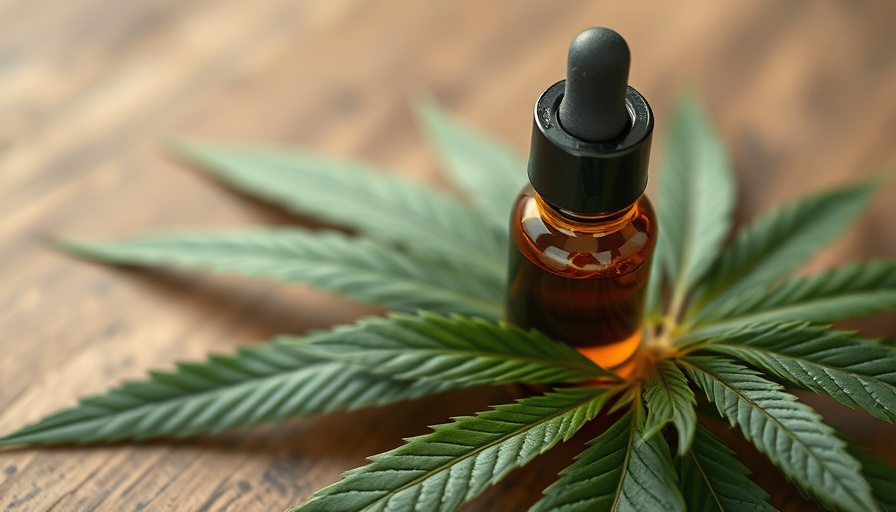
The Rise of Cannabis in Sleep Improvement
In today's fast-paced world, getting a good night's sleep can feel like a distant dream for many individuals. Sleep disorders, particularly insomnia, are on the rise, affecting millions worldwide. In light of this growing concern, recent studies have explored the potential benefits of cannabis-based medical products in promoting better sleep. Reports have emerged indicating that patients suffering from insomnia have experienced improvements in their sleep quality after using such products. This rising trend prompts us to delve deeper into the implications of using cannabis for sleep recovery.
Understanding Insomnia: A Common Struggle
Insomnia is more than just an occasional sleepless night; it's a chronic condition that can significantly impact a person's quality of life. People suffering from insomnia may experience difficulty falling asleep, staying asleep, or waking up too early, leading to daytime fatigue, irritability, and impaired cognitive function. The reasons behind insomnia can vary, from stress and anxiety to medical conditions and environmental factors. As such, traditional treatments often include medication, therapy, and lifestyle changes, but these don't always yield desired results.
Why Cannabis? The Benefits at a Glance
Cannabis-based medical products have gained popularity not only for pain management but also for their potential to assist with sleep disorders. THC, the compound known for its psychoactive properties, is thought to help users feel more relaxed and drowsy, while CBD offers calming effects without the 'high.' Patients have reported falling asleep faster and enjoying deeper sleep cycles when incorporating these products into their nightly routines. This opens up an avenue for those seeking alternatives to conventional sleep medications, which sometimes come with unwanted side effects.
Recent Findings on Sleep Quality Improvement
A recent survey revealed that insomnia patients using cannabis-derived products felt a noticeable improvement in their sleep quality. Participants reported fewer awakenings during the night, increased duration of sleep, and an overall enhancement in their ability to cope with the challenges of insomnia. These findings have sparked debate within the medical community, as research continues to unfold about the long-term effects and efficacy of cannabis as a treatment method for sleep disorders.
Counterpoints: Considerations and Cautions
While the potential benefits of cannabis for sleep improvement are promising, it’s essential to approach this treatment option with a well-rounded perspective. Not all individuals may experience the same positive outcomes. Some experts express concerns about the risks of developing tolerance or dependence. Furthermore, the legal status of cannabis products varies widely, which can complicate access for those considering treatment.
Accessing Cannabis-Based Products for Sleep Recovery
For those contemplating cannabis to manage sleep issues, understanding the available products and their respective dosages is crucial. Different strains, delivery methods (such as oils, edibles, or vaporizers), and concentrations can all affect treatment outcomes. Therefore, consulting with healthcare professionals knowledgeable in both sleep disorders and cannabis use is recommended. This ensures individuals receive tailored advice that aligns with their personal health conditions and lifestyle.
Encouraging Healthier Sleep Habits
In addition to exploring cannabis alternatives, adopting healthy sleep habits can significantly enhance overall sleep quality. Creating a bedtime routine, prioritizing relaxation techniques, and ensuring optimal sleep environments can yield lasting benefits. Engaging in regular physical activity and mindfulness practices like meditation can also promote better sleep patterns.
Embracing Alternative Solutions
As conversations about cannabis and its medicinal properties become more commonplace, it’s essential to stay informed about various treatment options. Whether through traditional methods or new alternatives, the goal remains the same: achieving restorative sleep and improved overall well-being. By exploring the potential of cannabis for sleep recovery and remaining proactive about sleep hygiene, individuals may find their path toward better health.
If you or someone you know struggles with sleep disorders, consider discussing cannabis options with a healthcare provider. The journey to better sleep can begin with informed choices and self-care.
 Add Row
Add Row  Add
Add 




Write A Comment